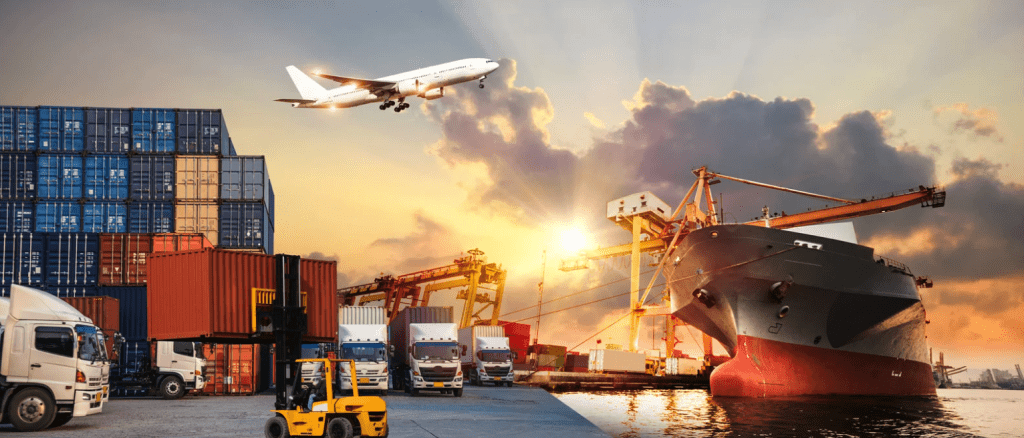
Introduction: The Strategic Power of ERP Software for Logistics and Supply Chain
In today’s hyper-competitive and globalized marketplace, the efficiency of logistics and supply chain operations can make or break a business. From real-time inventory tracking to streamlined transportation and warehousing, organizations are under increasing pressure to optimize every element of their supply chain. This is where ERP Software for Logistics and Supply Chain comes into play.
At NeuroXpress, we understand the critical role that ERP systems play in unifying operations and unlocking performance potential in the logistics and supply chain industry. In this article, we explore the top ERP solutions tailored for logistics, their essential features, pros and cons, and how they empower businesses to remain agile and data-driven.
What is ERP Software for Logistics and Supply Chain?
Enterprise Resource Planning (ERP) software for logistics and supply chain management integrates various functions like procurement, order fulfillment, inventory management, transportation, and demand forecasting into a single system. These platforms enable:
- Real-time visibility into inventory and orders
- Automation of routine tasks for efficiency
- Data-driven decision making using advanced analytics
- Scalability to support global operations
- Compliance and risk management tracking
By unifying data across departments, ERP systems foster better collaboration and operational consistency.
Top ERP Software for Logistics and Supply Chain Management in 2025
| ERP Software | Key Features | Pricing Range | Best For |
|---|---|---|---|
| SAP S/4HANA | Real-time analytics, global trade services, logistics network | Custom quote | Large enterprises with complex operations |
| Oracle NetSuite | Inventory control, demand planning, transportation mgmt | From $99/user/month | Growing logistics firms |
| Microsoft Dynamics 365 | Freight reconciliation, IoT integration, warehouse mgmt | Custom quote | Mid to large logistics operations |
| Infor CloudSuite | Multi-modal transport, fleet management, supplier portal | Custom quote | Manufacturing and logistics providers |
| Epicor ERP | Supply chain analytics, vendor management, demand planning | Custom quote | SMEs in industrial logistics |
| Acumatica ERP | Cloud-native, inventory control, order fulfillment | From $1,800/year | Mid-sized distribution and supply chains |
Pros and Cons of Leading ERP Systems
| ERP Software | Pros | Cons |
|---|---|---|
| SAP S/4HANA | Extremely robust and scalable, predictive insights | High implementation cost, steep learning curve |
| Oracle NetSuite | Great for multi-location logistics, real-time dashboards | Can become expensive as add-ons scale |
| Microsoft Dynamics 365 | Excellent integration with Microsoft ecosystem | Customization may require expert consultants |
| Infor CloudSuite | Deep logistics functionality, flexible deployment | User interface can feel outdated |
| Epicor ERP | Designed for manufacturing-logistics hybrid needs | Limited global presence and third-party apps |
| Acumatica ERP | Cost-effective, strong cloud functionality | Less recognized brand, smaller support network |
Why Your Logistics Business Needs ERP Now
1. Real-Time Inventory and Demand Planning
ERP platforms enable accurate inventory forecasts using historical and real-time data to reduce shortages and overstock.
2. Transportation Management Optimization
With integrated logistics features, businesses can route shipments, calculate freight costs, and track deliveries with ease.
3. Streamlined Warehouse Operations
Automated pick, pack, and ship workflows lead to faster order processing and reduced human errors.
4. End-to-End Visibility
From suppliers to customers, ERP systems provide transparency that builds trust and speeds up problem resolution.
5. Compliance and Risk Reduction
Whether it’s tracking goods across borders or adhering to safety regulations, ERP helps mitigate risks through built-in compliance tools.
Mid-Article Storytelling: When Bottlenecks Cost Millions
Consider a global logistics firm that suffered from mismanaged inventory and inconsistent shipping documentation. Their ERP-less setup meant siloed departments, delayed shipments, and customer churn. After implementing an integrated ERP system tailored to logistics, they witnessed a 40% improvement in order fulfillment time and regained customer confidence. This transformation demonstrates how ERP can turn bottlenecks into breakthroughs.
How to Select the Right ERP Software for Logistics and Supply Chain
Key Selection Criteria:
- Industry-Specific Functionality: Choose ERP with logistics-centric tools
- Cloud vs. On-Premise: Consider your IT infrastructure
- Scalability: Plan for future growth
- Ease of Use: Ensure staff can quickly adapt
- Support & Training: Vendor must offer comprehensive onboarding
External Link for Further Reading:
Explore more ERP insights on SupplyChainDigital
Summary Table: Feature Comparison
| Feature | SAP S/4HANA | Oracle NetSuite | Microsoft Dynamics 365 | Infor CloudSuite | Epicor ERP | Acumatica ERP |
|---|---|---|---|---|---|---|
| Real-Time Inventory | ✅ | ✅ | ✅ | ✅ | ✅ | ✅ |
| Transportation Management | ✅ | ✅ | ✅ | ✅ | ❌ | ✅ |
| Warehouse Automation | ✅ | ✅ | ✅ | ✅ | ✅ | ✅ |
| Global Trade Capabilities | ✅ | ✅ | ✅ | ❌ | ❌ | ❌ |
| Cloud Deployment | ✅ | ✅ | ✅ | ✅ | ❌ | ✅ |
| User Interface & Usability | ❌ | ✅ | ✅ | ❌ | ✅ | ✅ |
Conclusion
Choosing the right ERP Software for Logistics and Supply Chain is essential to achieving operational excellence in the modern business landscape. Whether you’re a growing firm or a multinational company, the right ERP can dramatically boost efficiency, reduce costs, and provide the data visibility you need to stay competitive.
From industry leaders like SAP S/4HANA and Oracle NetSuite to cost-effective options like Acumatica, each platform offers distinct strengths. The key is to align the software’s features with your unique logistics requirements.
For more insights and expert reviews, visit ERP-NeuroXpress.